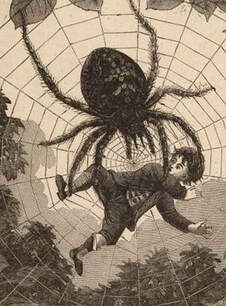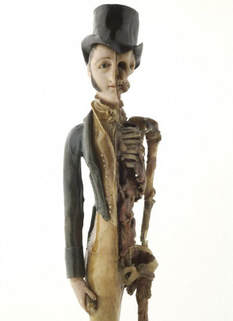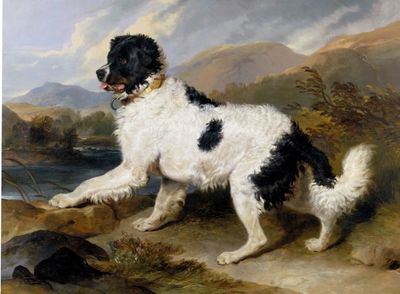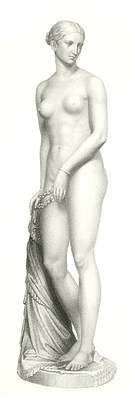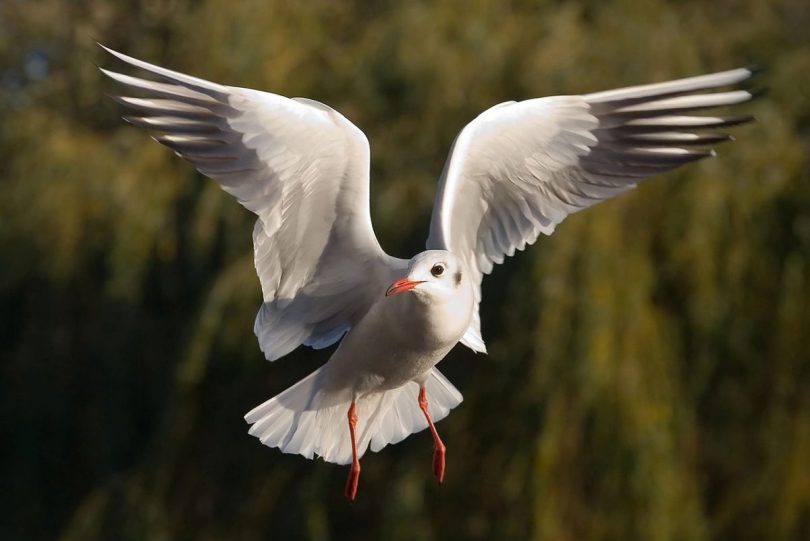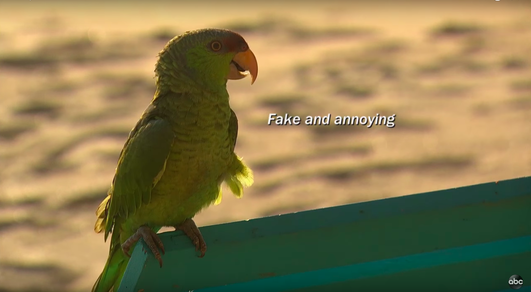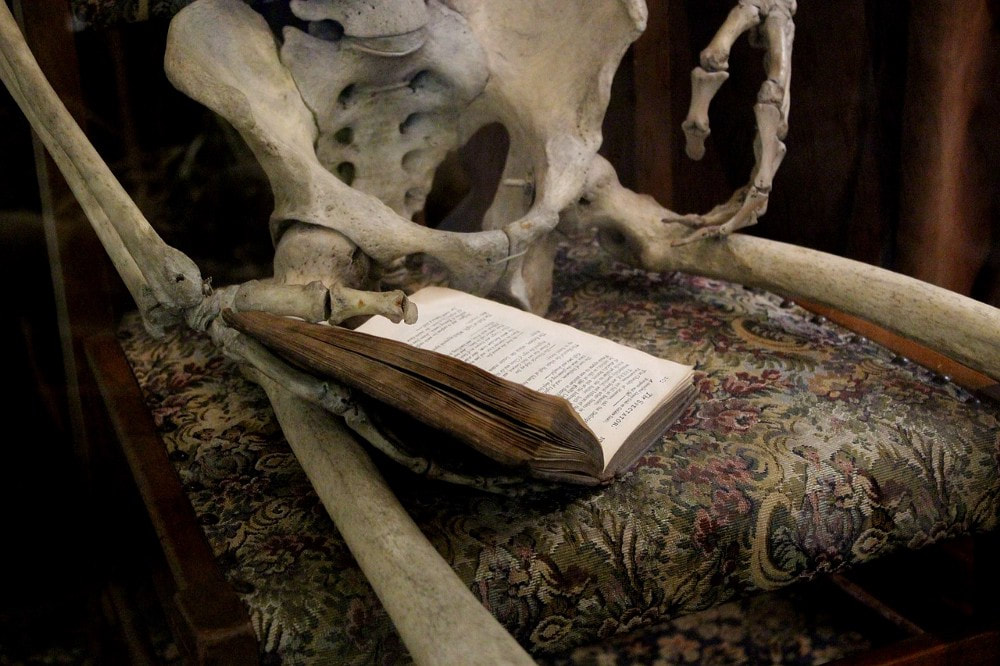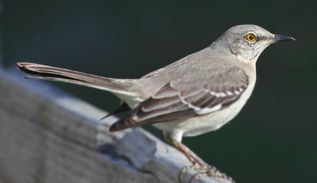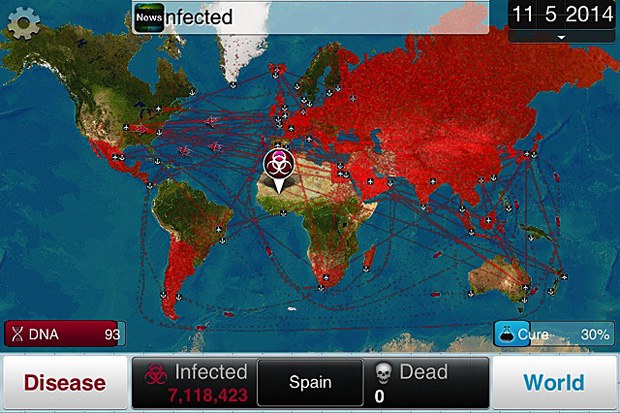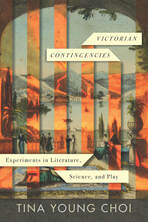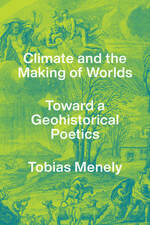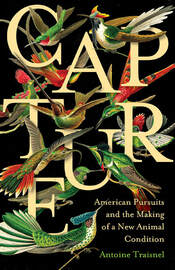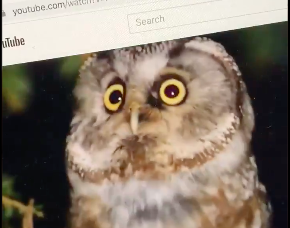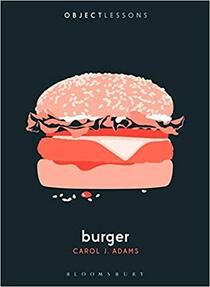Book
|
The Ecological Plot: How Stories Gave Rise to a Science
University of Virginia Press, 2024. (Out in September – preorder here) This book offers a new literary history of ecology. Beginning in the early 1800s, thinkers in a wide variety of fields began using stories to trace out the material relationships that tie communities together in networks of interdependence. This approach to narrative—what I call the ecological plot—became a favorite tool of writers who turned out to be formative influences on modern practices in economics, ecology, and literary fiction. Over time, however, disputes about how interconnection should be represented and valued drove these fields apart, resulting in the seemingly incompatible approaches to community espoused by these disciplines today. Touching on writers as diverse as Thomas Malthus, George Eliot, and Charles Darwin, The Ecological Plot traces this fascinating history of intellectual traffic and disciplinary rupture across the nineteenth century. In the process, it tries to explain why we have so much difficulty talking across disciplinary divides about our current environmental crises—and how we might change the stories we tell to better imagine a prosperous, humane, and sustainable community in the future. |
Academic Articles
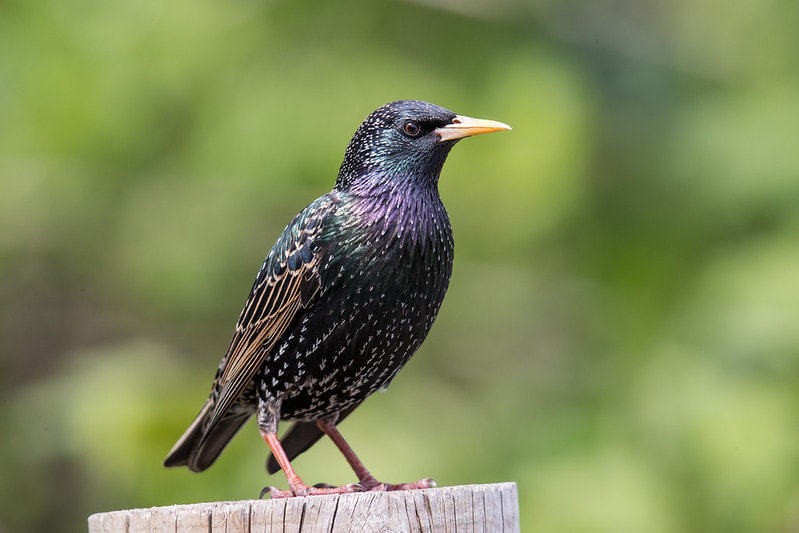
Photo: "European Starling" by Mick Thompson (CC BY-NC-ND 2.0)
|
Shakespeare's Starlings: Literary History and the Fictions of Invasiveness
Environmental Humanities vol. 13, no. 2, 2021, pp. 301-322. (co-authored with Lauren Fugate) Scientists, environmentalists, and birders are all familiar with the story of the disastrous introduction of the invasive European Starling to the United States in 1890 by one eccentric Shakespeare fan. There is only one problem: the story is almost entirely fiction. Tracing the history of the story alongside the history of the starling's spread across North America sheds valuable light on the way storytelling has worked to fill in gaps in scientific data, creating a narrative of the dangers of invasive species that has only a tenuous relationship to science. |
|
Weird Beyond Description: Weird Fiction and the Suspicion of Scenery
Victorian Studies vol. 62, no. 2, 2020, pp. 244-252. The rising literary status of weird fiction in the twenty-first century has renewed questions about what weird fiction is—and whether it is even possible to recognize any unique formal features that separate weird fiction from other kinds of writing. The most striking feature shared by weird fiction is its obsession with reconsidering the line separating narration from description—an obsession that makes it particularly useful as a genre for exploring humanity’s relationship with the nonhuman. |
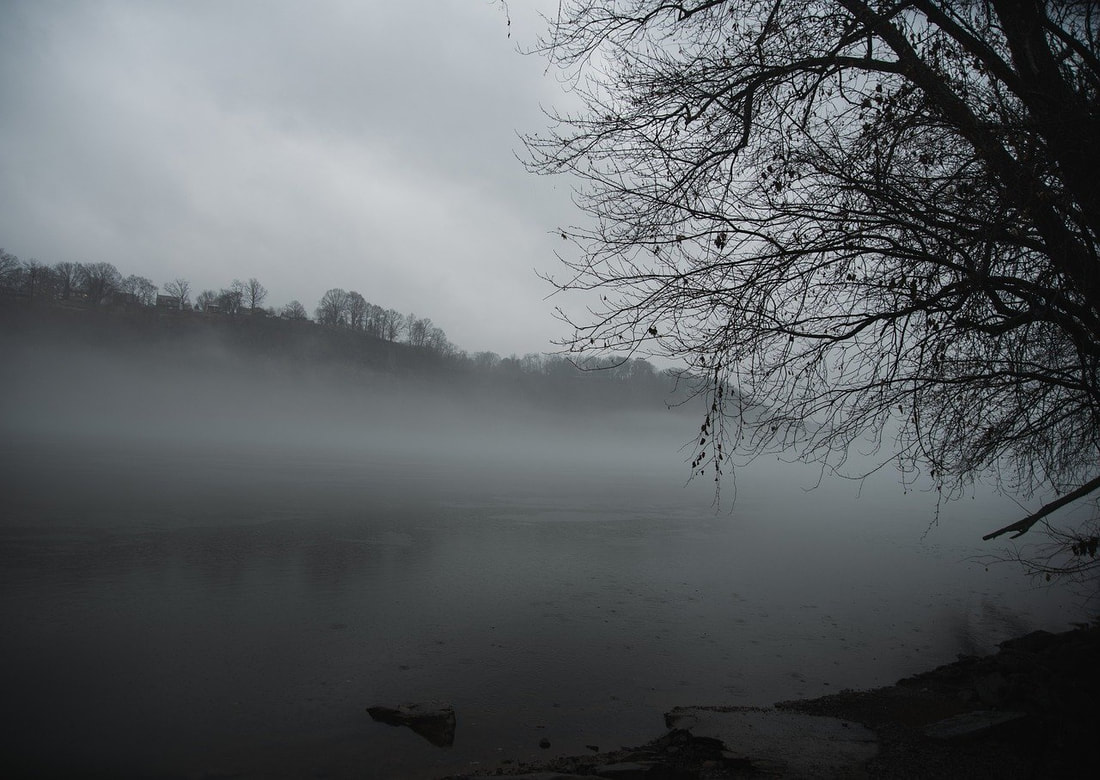
Image by Javon Thorpe from Pixabay
|
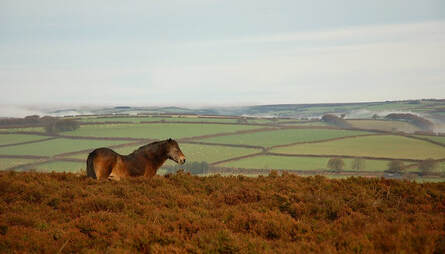
Photo: "Pony and Morning Mist" by Tim Coleman (CC BY-NC-ND 2.0)
|
Mischaracterizing the Environment: Hardy, Darwin, and the Art of Ecological Storytelling
Texas Studies in Literature and Language vol. 62, no. 2, 2020, pp. 149-177. Thomas Hardy is remembered as a spectacular chronicler of the English landscape—a writer who paid equal attention to social issues and to the stunning natural environments in which they took place. Reading his work alongside the writings of Charles Darwin suggests, however, that Hardy misapplied the key insights of ecology. It also shows how literary forms can either advance or hinder our ability to see ecological interconnection. |
|
The Ecological Plot: A Brief History of Multispecies Storytelling, from Malthus to Middlemarch
Victorian Literature and Culture vol. 48, no. 1, 2020, pp. 155-185. The Victorian novel is often treated as an attempt to represent society, but its literary history suggests that it actually emerged from a kind of proto-ecological thought. Modern economics, ecology, and the social novel all show a profound debt to the writings of Thomas Robert Malthus, whose emphasis on interspecies interconnection shaped their respective understandings of community. These three fields eventually diverged in part because they disagreed on how to resolve the ethical problems such interconnection entailed. |
|
Composing Decomposition: In Memoriam and the Ecocritical Undertaking
Nineteenth-Century Contexts vol. 39, no. 5, 2017, pp. 383-398. (PDF) A fascination with rotting corpses lies buried just beneath the surface of In Memoriam, Alfred Tennyson's otherwise sombre, searching lyrics on the premature death of his best friend. Learning to read for this kind of rot may sound morbid, but it's important: decomposition is the process of returning the body's nutrients to the earth, so changing attitudes towards decay provide valuable information about humanity's understanding of our place in the natural world. |
|
When Drama Went to the Dogs; or, Staging Otherness in the Animal Melodrama
PMLA vol. 132, no. 3, 2017, pp. 526-542. (PDF) Live animal actors ruled the nineteenth-century stage in a series of forgotten works known as quadruped dramas. These interspecies performances reveal much about melodrama—and about the theater's fascination with treating animals as outsiders who never truly belong onstage. |
|
Slavish Poses: Elizabeth Barrett Browning and the Aesthetics of Abolition
Victorian Poetry vol. 52, no. 4, 2014, pp. 637-659. (PDF) Elizabeth Barrett Browning's encounter with The Greek Slave, a controversial nude statue sculpted by her friend Hiram Powers, changed the way she thought about the role women and artists could play in politics—especially the politics of slavery. Her sonnet on the nude statue shows how Powers's work inspired her to develop the highly performative and conventionalized female speaker central to her late abolitionist poem, "A Curse for a Nation." |
Essays
|
In College and in Life, Take It Easy
Allegheny Campus, 18 November 2022. Op-Ed: College students should be careful not to fall into the trap of equating difficult, draining work with important work. All work is difficult, but different kinds of work feel easier—because they feel more intrinsically rewarding—to different kinds of people. Success in life isn't about choosing hardship, but finding fields that you want to pursue because the work they entail feels rewarding and valuable to you. |
|
What Birders Don’t See
Public Books, 10 November 2020. The racially charged encounter between a white dog walker and a Black birder in Manhattan’s Central Park in May 2020 drew attention to the ways social issues continue to shape the seemingly apolitical act of nature appreciation. Two recent works of popular science writing show how science communicators are trying to break with older, more conservative modes of talking about nature—and how far we still have to go. |
|
Animal Attraction: The Ridiculous Realism of Bachelor in Paradise
Avidly, 4 October 2018. The stars of ABC's Bachelor in Paradise don't just act like animals—they act with animals, too. The show's strategy of placing its actors in conversation with raccoons, parrots, dogs, cats, and crabs is not as odd or innovative as it seems: it is simply the latest in a long line of theatricals that have put human and animal actors side-by-side to meditate on the artificiality of drama itself. |
|
Can Novels Change Our Attitudes About Death?
Electric Literature, 27 February 2018. Most fiction writers treat death as final—as literally the end of the story. But by continuing to follow their characters even after they die, a growing batch of novels promises to help readers come to terms with their own mortality. |
|
Is it Really So Wrong to Kill a Mockingbird?
The Millions, 21 July 2016. There's no need to read Go Set a Watchman to see that Atticus Finch was a flawed character deeply invested in glorified images of the Old South. All that's needed is a deeper understanding of the titular bird of Harper Lee's To Kill a Mockingbird. |
|
People Are Sickening: The Bug's Eye View of Pandemic Games
PopMatters, 5 February 2013. A new strain of mobile gaming puts players in the position of a disease bent on eliminating the human race. These simulators experiment with an extraordinarily alien perspective that shows both the potential and the limitations of video games as tools for changing humans' understanding of our impact on the planet. |
Reviews
|
Review of Devin Griffiths and Deanna Kreisel, eds., After Darwin: Literature, Theory, and Criticism in the Twenty-First Century. Cambridge Univ. Press, 2023.
Nineteenth-Century Literature vol. 79, no. 1, 2024, pp. 69-73. |
|
Review of Tina Young Choi, Victorian Contingencies: Experiments in Literature, Science, and Play. Stanford Univ. Press, 2021.
Studies in the Novel vol. 55, no. 1, 2023, pp. 113-115. |
|
Review of Tobias Menely, Climate and the Making of Worlds: Toward a Geohistorical Poetics. Univ. of Chicago Press, 2021.
Modern Philology vol. 119, no. 4, pp. E171-E173. |
|
Review of Antoine Traisnel, Capture: American Pursuits and the Making of a New Animal Condition. Univ. of Minnesota Press, 2020.
ISLE: Interdisciplinary Studies in Literature and the Environment vol. 28, no. 3, 2021, pp. 1207-1209. |
|
Meat Cultures
Humanimalia vol. 10, no. 1, 2018. Review of: Adams, Carol J. Burger. Bloomsbury Academic, 2018. 192 pp. Geier, Ted. Meat Markets: The Cultural History of Bloody London. Edinburgh Univ. Press, 2017. 200 pp. |
Creative Writing
"Mudpuppy Run." The Hopper vol. 7, no. 2, Fall 2022. (fiction)
"Consider Her Ways and Be Wise." Peatsmoke, Fall 2022. (creative nonfiction)
"A Technique for Recording." The Shore vol. 14, Summer 2022. (poetry)
"Taxis and Instinct." The Shore vol. 14, Summer 2022. (poetry)
"Blissful Creatures." About Place Journal vol. 6, no. 4, October 2021. (fiction)
"Waste Management." Bartleby Snopes, March 2013. (fiction)
"Novelty." Pindeldyboz, September 24, 2007. (fiction)
"Consider Her Ways and Be Wise." Peatsmoke, Fall 2022. (creative nonfiction)
"A Technique for Recording." The Shore vol. 14, Summer 2022. (poetry)
"Taxis and Instinct." The Shore vol. 14, Summer 2022. (poetry)
"Blissful Creatures." About Place Journal vol. 6, no. 4, October 2021. (fiction)
"Waste Management." Bartleby Snopes, March 2013. (fiction)
"Novelty." Pindeldyboz, September 24, 2007. (fiction)
Proudly powered by Weebly


